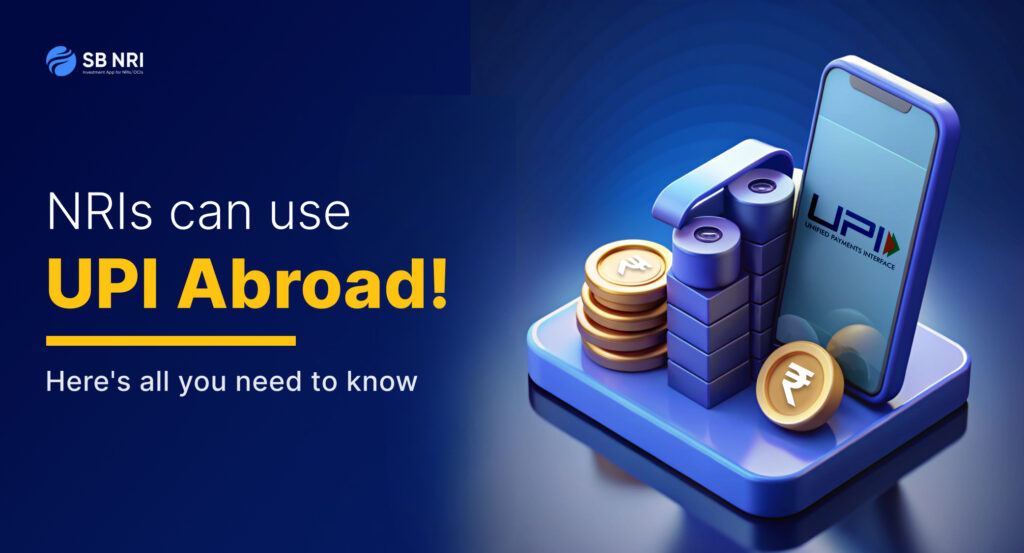NRI Bank Accounts
An Indian citizen who attains NRI (Non-Resident Indian) status can’t operate a regular resident account as per the RBI guidelines. NRIs and PIOs (Persons of Indian Origin) need to open an NRI bank account for their several banking and investment needs. A non-resident bank account allows you to deposit and manage your income in foreign denominations, such as USD, Euro, AUD, JPY, etc. Here are all aspects of NRI bank accounts.
What is NRI account?
A Non-Resident Indian account is a bank account opened by a Non-Resident Indian or Person of Indian Origin (PIO) or Overseas Citizen of India (OCI), with a bank or financial institution authorized by the RBI (Reserve Bank of India). NRIs can open NRI bank accounts to deposit their foreign earnings or income originated in India. NRI accounts are also needed to conduct transactions like remittance to residents, NRI investment in India, payment of financial obligations, etc.
Types of NRI accounts
There are three types of NRI accounts available for non-resident customers – NRE bank account, NRO bank account and FCNR FD. It is important to understand the fundamental distinctions among these accounts.
Here are the types of NRI bank accounts available in India for NRI, PIOs and OCIs. You can open NRI bank accounts based on your transactional requirements.
- Non-Resident External (NRE) accounts
- Non-Resident Ordinary (NRO) accounts
- Foreign Currency Non-Resident (FCNR) accounts
Non-Resident External (NRE) accounts
An Non-resident can open a Non-Residential External or NRE account to deposit and maintain his/her foreign earnings in India. The is a rupee-denominated account and can be opened in the form of savings or current bank accounts. Interest earned from these accounts is not taxable in India.
Non-Resident Ordinary (NRO) accounts
An NRO or Non-Resident Ordinary account is primarily opened for depositing income earned in India, such as rental income, dividends, pension, etc. You can convert a resident account into an NRO account once your resident status changes to NRI.
For instance, Mr. Joginder, an NRI staying in London (UK), has an apartment in Delhi which he has rented out to Mr. Rahul. To receive rental income periodically from Rahul, Joginder has to open an NRO account.
For depositing Indian earnings, there is no step of currency conversion involved. Although foreign earnings can also be deposited in this account.
Foreign Currency Non-Resident (FCNR) accounts
FCNR or Foreign Currency Non-Resident (FCNR) accounts can be opened in the form of term deposits in any one of the foreign currencies prescribed by RBI. Different currencies in which FCNR deposits can be made by NRIs or PIOs include US Dollars (USD), Euro (EUR), Great Britain Pound Sterling (GBP), Japanese Yen (JPY), Canadian Dollar (CAD), Australian Dollar (AUD), Singapore Dollar (SGD), etc.
This means earnings of NRIs or PIOs in any of these currencies shall not be subject to conversion for deposits made in an FCNR (B) account. However, if you earn in any other currency, the deposit made shall be converted in any of the RBI prescribed currencies.
You can open NRI accounts with most of the top public and private sector banks in India. For example, you can apply for SBI NRI savings account, ICICI Bank NRI account opening, HDFC Bank NRI accounts, and also with many other banks.
Difference between NRI accounts
Here are the key differences among the three types of NRI accounts:
| Particulars | NRE Account | NRO Account | FCNR (B) Account |
|---|---|---|---|
| Currency denomination | INR (Indian Rupee) | INR (Indian Rupee) | USD, GBP, EUR, JPY, CAD, AUD, SGD, CHE, HKD |
| Purpose of account | Opened by an NRI to deposit his/ her earnings originated abroad in INR | Opened by an NRI to deposit his/ her Indian income in INR | An FCNR account can be opened by NRI to deposit his/ her earnings originated abroad in any of the RBI prescribed currencies |
| Types of accounts | Savings, current, or fixed deposit account | Savings, current, or fixed deposit account | Only fixed deposit accounts can be opened with a minimum maturity period of 1 year |
| Taxability | The entire amount principal + interest earned is exempted from tax | Interest earned is taxable | Interest earned from FCNR deposits is tax-free |
| Joint account facility | NRE account can only be opened with another NRI/ PIO/ OCI | NRO account can be opened with another NRI or a resident Indian | FCNR account can only be opened with another NRI/ PIO/ OCI |
| Repatriation | Both principal and interest are fully repatriable | The interest earned can be fully repatriable after payment of applicable taxes. The principal amount can be repatriated up to $1 million in a financial year from your NRO account | The entire balance is fully repatriable |
| Effect of exchange rate | Impacted by movement in prevailing exchange rates | Not affected by prevailing exchange rates | Impacted by prevailing exchange rates |
Eligibility criteria for opening NRI savings account in India
While the eligibility criteria for an NRI bank account in India may vary from bank to bank, here are common requirements you need to fulfil to open NRI accounts:
- Residential status of the applicant should be NRI, as per the Income Tax Act 1961.
- Individuals employed with the Indian Navy, airlines registered with a foreign country, overseas shipping companies, for at least 182 days outside India’s domestic territories, are also eligible for opening NRI accounts.
- Government of India employees holding diplomat passport.
- Students pursuing education abroad.
Documents required for opening NRI bank account
Although documentation varies based on the bank’s policy, here is the checklist of common documents required for opening NRI accounts:
- Account opening application form
- Photocopies of front and back pages of the passport featuring details like name, address, date of birth, date of passport issuance and expiration, etc.
- Employment proof
- Photocopy of valid visa/ work permit/ student visa/ residence visa
- Address of India and abroad (as applicable)
NRI account benefits
Following are the key benefits of opening an NRI bank account in India:
- Enables inward remittance
One of the primary benefits of an NRI bank account is that it allows NRIs to remit their income abroad to their dependents in India. Indians earning abroad in a foreign currency can transfer funds in their NRI accounts in India, which is denominated in India Rupees (INR).
- Facilitates receipt of Indian income
NRIs who get income from Indian resources such as rental income, dividends, pension, etc. need to open an NRO account to receive their Indian income. For example, if you have leased a flat to someone in India, your tenant can deposit monthly rent in your NRO account.
- Enables investment in India
It is essential for NRIs and OCIs to open an NRI bank account in India to trade in the stock market in India and contribute to different investment schemes. Such investments are facilitated through the Portfolio Investment Scheme (PIS) or NRI Portfolio Investment.
- Tax benefits
Interest earned from NRE and FCNR (B) accounts is not taxable in India under the Income Tax Act 1961.
- High returns
- NRI FDs such as NRE FD and FCNR FDs offer attractive returns at negligible risks because such accounts have no connection with stock market fluctuations.
- Opportunity to avoid exchange rate fluctuations
When putting their foreign earnings in an FCNR deposit, NRIs don’t need to convert the foreign currency into INR. As a result, NRIs can avoid exchange rate fluctuations and resultant reduction in the deposit value.
How to open NRI savings account
You can open an NRI account online as well as by visiting a branch of the bank in India. Here are the three ways to open an NRI bank account.
- Visit the nearest branch of the bank if you are in India
- Or visit the respective bank’s website
- Open NRI accounts online through SBNRI
NRI savings account opening on bank’s website
You can go to the official of a bank and follow steps as prescribed.
Open NRI account online through SBNRI App
NRIs and PIOs can apply for an NRI account opening online in the simplest and shortest way, using the SBNRI app. Here are simple steps to apply for NRI accounts with minimal documentation and in a few steps via the SBNRI App:
- Download the SBNRI App and sign in using your credentials.
- Click on ‘Open NRI Account’ button and select the bank where you want to open an NRI account.
- Select the account type
- Scan and upload KYC documents using the in-app scanning feature.
- Click on ‘Apply’ and that’s it.
Best NRI bank accounts in India
Here are some of the leading banks for NRI accounts in India. You can find the detailed information about best NRE accounts in this blog.
SBI NRI account
- SBI NRI bank account types: NRE/ NRO savings account
- Interest rate: 2.70% p.a.
- Monthly average balance requirement: Rs. 10,000
HDFC NRI account
- NRE/ NRO savings account
- Interest rate: 3.00% p.a. for balances below Rs. 50 lakh and 3.50% for balances equal to or above Rs. 50 lakh
- Monthly average balance requirement: Rs. 10,000
ICICI NRI account
- NRE/ NRO savings account
- Interest rate: 3.5.00% p.a. for balances below Rs. 50 lakh and 4.00% for balances equal to or above Rs. 50 lakh
- Monthly average balance requirement: Rs. 10,000
Axis Bank NRI account
- NRE/ NRO savings account
- Interest rate: up to 3.00% p.a.
- Monthly average balance requirement: Rs. 25,000
Kotak Mahindra Bank NRI accounts
- NRE/ NRO savings account
- Interest rate: 3.5.00% p.a.
- Monthly average balance requirement: Rs. 10,000
Due to lots of information and documentation required to apply for NRI accounts, account opening process is lengthy and cumbersome elsewhere. You can download SBNRI App to apply for an NRI account with nominal documentation in just 10 minutes.
You can also click on the button below to apply for an NRI account. Visit our blog and YouTube Channel for more details.
Below are some common questions NRIs look the answer for:
- Process to open NRI Bank Accounts in top Indian Banks
- Ongoing NRE FD and NRI Savings Account Interest Rates
- Taxation on Indian Investments and Income
- NRI Bank Accounts Comparison (watch video)
- NRI Returning to India: 3 Major Financial Changes











